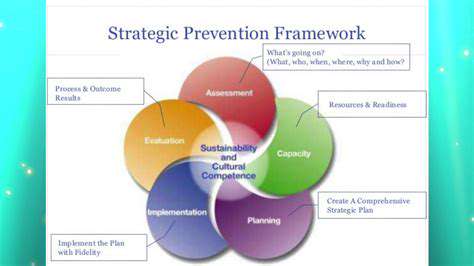How to Prevent Scale Rot in Reptiles
Understanding Scale Rot in Reptiles
Scale rot, a common skin infection in reptiles, is characterized by the presence of lesions on the scales. These lesions can vary in appearance, from small, inflamed areas to larger, ulcerated patches. Early detection is crucial for effective treatment, as left untreated, scale rot can spread rapidly and cause significant discomfort and potential health complications for your reptile companion. Identifying the specific cause of the rot is essential to ensuring the proper treatment plan is implemented.
Understanding the underlying causes, such as poor water quality, improper humidity levels, or even stress, is vital. Reptiles require specific environmental conditions to maintain healthy skin, and any deviation from these conditions can increase their susceptibility to scale rot. This understanding is a key first step in developing preventative measures, ensuring the reptile's environment supports their well-being.
Veterinary Diagnosis and Assessment
A veterinarian plays a critical role in diagnosing scale rot. They will perform a thorough physical examination of your reptile, looking for signs of infection beyond simply observing the affected scales. This might include checking for underlying health conditions that could be contributing factors. A visual inspection alone might not always reveal the full extent of the issue, and a professional assessment is crucial for an accurate diagnosis.
Laboratory testing might be necessary to determine the specific bacteria or fungus causing the infection. This allows for the development of a targeted treatment plan, maximizing the chances of a successful outcome. This detailed approach ensures that your reptile receives the most appropriate treatment for their unique situation.
Treatment Options for Scale Rot
Veterinary treatment options for scale rot vary depending on the severity and cause of the infection. A veterinarian will prescribe topical or systemic medications, often in combination, to address the infection effectively. Topical treatments are designed to directly target the affected areas, while systemic medications address the infection more broadly throughout the reptile's body.
Environmental Modifications and Husbandry Practices
Maintaining optimal environmental conditions is crucial for preventing and treating scale rot. This includes ensuring proper humidity levels, appropriate water sources, and a clean enclosure. Addressing factors like stress, overcrowding, and inadequate nutrition can also significantly improve the reptile's overall health and resilience to infection. These modifications aim to create a supportive environment that promotes healing and prevents future outbreaks.
Prognosis and Prevention Strategies
The prognosis for scale rot depends on several factors, including the severity of the infection, the promptness of treatment, and the underlying health of the reptile. Early intervention and diligent veterinary care significantly improve the chances of a successful outcome. Prevention is key, and this involves maintaining ideal environmental conditions, providing a balanced diet, and ensuring regular veterinary check-ups. These proactive measures reduce the risk of scale rot and promote the long-term health and well-being of your reptile companions.
Preventing Future Infections
Understanding Scale Rot
Scale rot, a common affliction in reptiles, is a fungal or bacterial infection that manifests as lesions on the scales. Early detection is crucial for effective treatment, as the infection can rapidly spread if left unattended. Understanding the signs and causes of scale rot is the first step in preventing future outbreaks. This involves close observation of your reptile's skin and recognizing any changes, such as discoloration, sores, or inflammation.
Identifying the specific type of infection is important, as different microorganisms require different treatment protocols. A veterinarian specializing in exotic animals can provide a definitive diagnosis and recommend the best course of action. Early intervention is key to preventing severe complications and ensuring a positive outcome for your reptile companion.
Maintaining Proper Enclosure Hygiene
A crucial aspect of preventing scale rot is maintaining impeccable hygiene within your reptile's enclosure. Regular cleaning, using appropriate disinfectants, is essential to eliminate any potential pathogens. This includes thoroughly cleaning the enclosure substrate, removing any decaying matter, and disinfecting all surfaces, including water bowls and hides. Proper sanitation significantly reduces the risk of infection.
Regularly replacing bedding and thoroughly cleaning water dishes will help prevent the buildup of bacteria and fungi that can contribute to scale rot. Use a reptile-safe disinfectant to ensure the safety of your pet and the effectiveness of your cleaning routine.
Providing a Healthy Diet
A well-balanced diet plays a vital role in a reptile's overall health and immunity. A diet deficient in essential nutrients can compromise the animal's ability to fight off infections, making them more susceptible to scale rot. Providing a varied and nutritious diet is paramount for maintaining a strong immune system.
Ensuring your reptile is consuming a diet rich in vitamins, minerals, and proteins is crucial for overall health. Consult with a veterinarian or reptile specialist to determine the appropriate dietary needs for your specific reptile species, as different species have varying nutritional requirements.
Monitoring Hydration Levels
Proper hydration is essential for a reptile's well-being and contributes to their immune system's strength. Dehydration can weaken the body's defenses, increasing the risk of infections like scale rot. Ensure your reptile has access to clean, fresh water at all times.
Regularly checking the water levels and ensuring the water remains clean and fresh is crucial to prevent the growth of bacteria and fungi that can contribute to scale rot. A clean water source is a critical component in maintaining a healthy environment.
Environmental Temperature Control
Temperature plays a significant role in a reptile's metabolism and overall health. An improper temperature gradient within the enclosure can weaken their immune system, making them more vulnerable to infections. Maintaining a stable and appropriate temperature is essential.
Consistent monitoring of temperature gradients within the enclosure is crucial for reptile health and well-being. Proper temperature and humidity control are critical components in preventing the spread of disease and ensuring a healthy environment for your reptile.
Avoiding Stress and Handling Practices
Stress significantly weakens a reptile's immune system, making them more susceptible to infections like scale rot. Minimize stress factors in their environment, such as loud noises or sudden changes in their surroundings. Handle your reptile gently and avoid excessive handling.
Appropriate handling techniques are crucial for reducing stress and preventing the spread of infections. Avoid rough handling or prolonged exposure to stress. Consider using appropriate tools for handling, such as tongs or reptile-specific handling gloves.
Read more about How to Prevent Scale Rot in Reptiles
Hot Recommendations
- How to Teach Your Dog to Leave It
- My Pet's First Snow Experience [Story]
- Review: [Specific Brand] Pet Water Fountain
- Guide to Dealing with Aggression in Dogs
- Guide to Using Positive Reinforcement in Training
- Living with a Pet Who Loves the Outdoors
- Guide to Puppy Obedience Training
- Guide to Training a Deaf Dog
- Funny Moments While Grooming My Pet
- Best Training Methods for Specific Dog Breeds

![A Day in the Life of My [Pet's Name]](/static/images/33/2025-05/BreakfastofChampions28or2CatLeast2CofChampions-SizedTreats293A.jpg)



![My Story of Rescuing a Bird [Story]](/static/images/33/2025-06/ATriumphantReturntoFreedom.jpg)


![My Experience Rescuing a Reptile [Story]](/static/images/33/2025-07/ASuccessfulRescueandReflection.jpg)


![My Pet's Unique Personality [Story]](/static/images/33/2025-07/DecodingtheLanguageofLove3AHowMyBirdExpressesHerUniquePersonality.jpg)